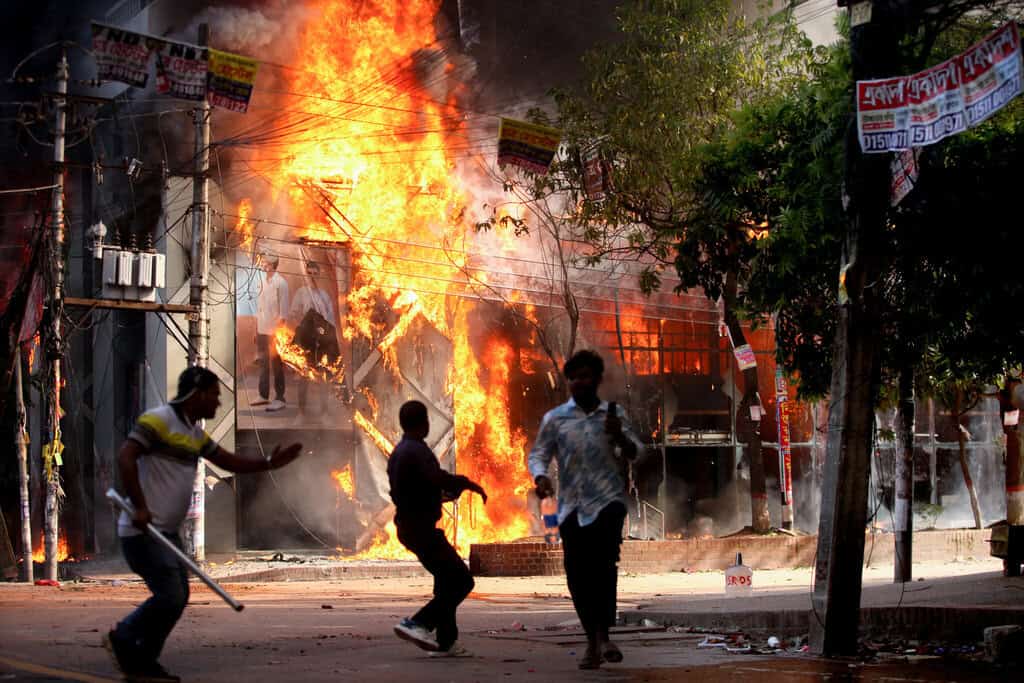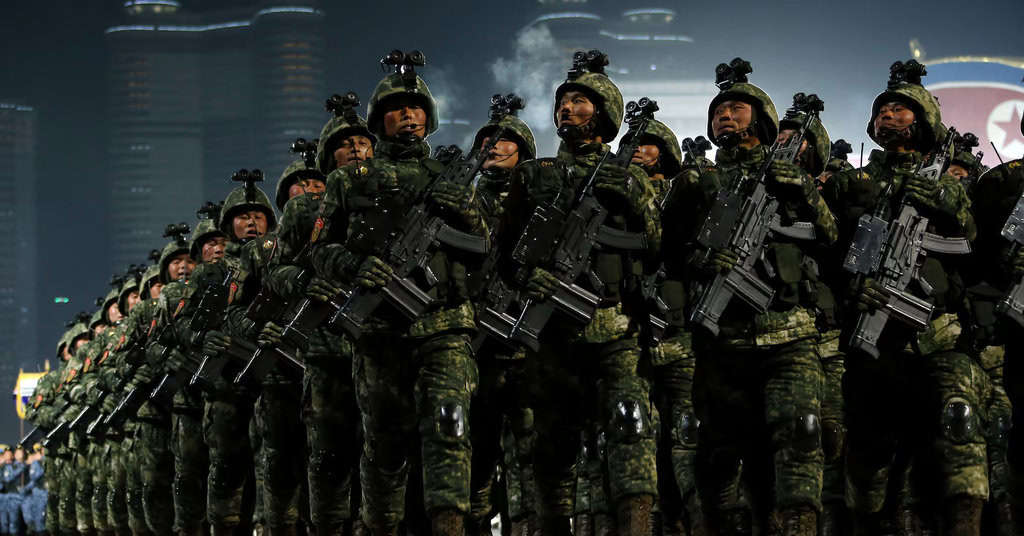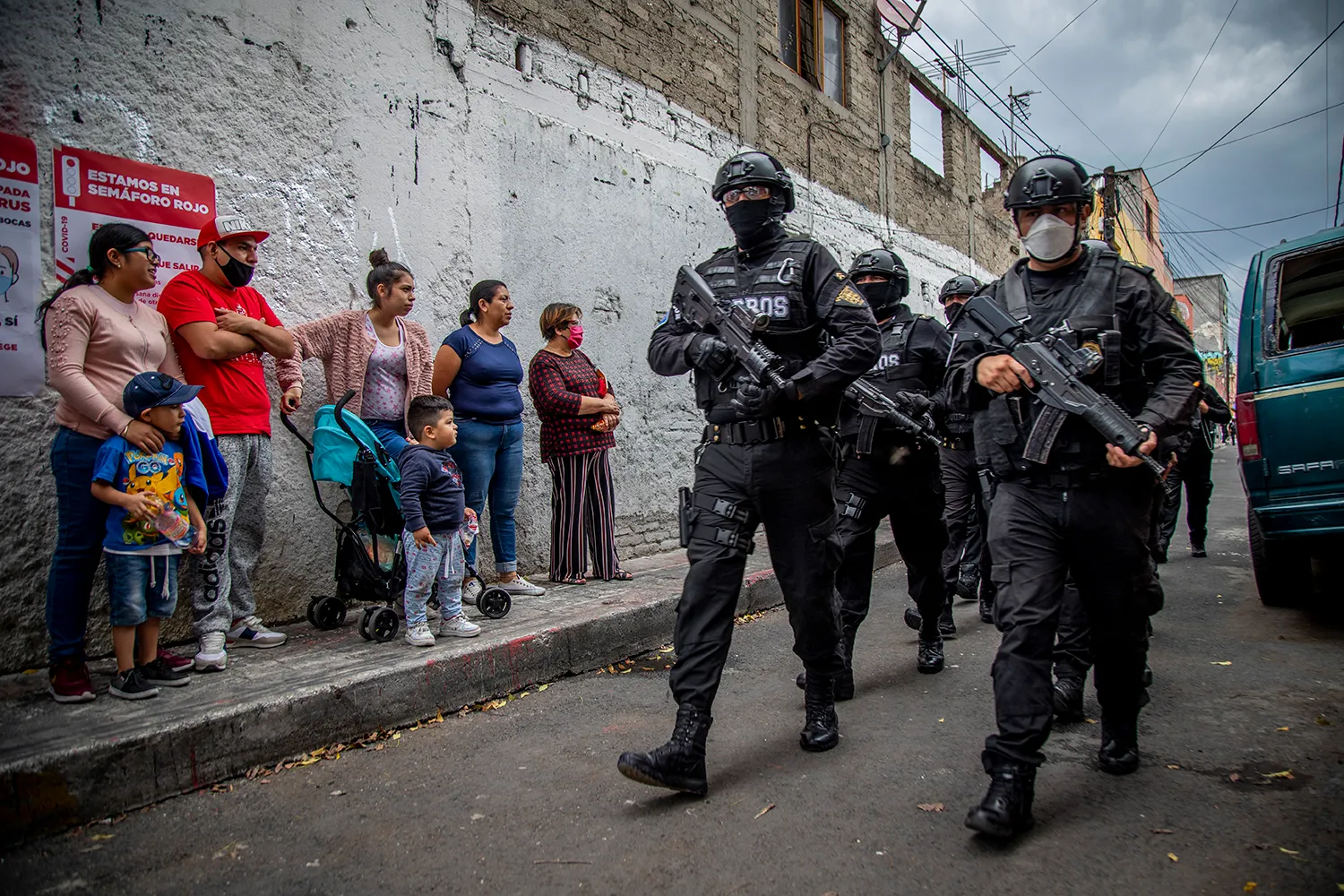Bangladesh is facing a significant political upheaval as Prime Minister Sheikh Hasina resigned and fled the country on Monday following intense deadly protests that claimed nearly 100 lives. The unrest began with student demonstrations against a controversial quota system for government jobs and escalated into widespread dissent against Hasina’s 15-year rule.
The Genesis of the Crisis
The protests, initially peaceful, were sparked by student demands to abolish a government job quota system perceived as favoring the prime minister’s Awami League party. However, the quota system protests quickly morphed into a broader challenge to Hasina’s leadership, reflecting widespread dissatisfaction with issues such as high unemployment, corruption, and climate change impacts.
Violent Clashes and Government Crackdown
The situation turned violent over the weekend, with thousands of demonstrators storming Hasina’s official residence. Clashes between protesters and security forces resulted in at least 95 deaths, including 14 police officers, and left hundreds injured. The government’s harsh response, including a deadly crackdown and student protests further fueled public outrage.
Military Steps In
Following Hasina’s departure, the country’s military chief, Gen. Waker-uz-Zaman, announced plans to consult the president on forming an interim government. He assured the public of an investigation into the deadly crackdown and emphasized that no further violence from the military or police would be tolerated. His statements were aimed at restoring calm and addressing the grievances that led to the protests, highlighting the political instability the nation faces.
Political and Social Ramifications
The resignation of Hasina, Bangladesh’s longest-serving female head of government, marks a pivotal moment for the nation. Her departure creates a power vacuum and heightens the risk of further political instability. The opposition, including members of the now-banned Jamaat-e-Islami party, has seized the moment to push for political reforms and greater democratic freedoms, signaling a period of significant social unrest.
International Reactions
Hasina’s government had fostered strong ties with countries like India and China but faced criticism from Western nations over human rights abuses and press freedom restrictions. The international response to her resignation has been one of cautious observation, with potential implications for regional stability and global diplomatic relations. Human rights concerns remain at the forefront of international scrutiny.
The Road Ahead
As Bangladesh grapples with this crisis, the path forward remains uncertain. The formation of an interim government and the potential for new elections will be crucial in determining the country’s future. The protests have underscored the need for substantial political and economic reforms to address the underlying issues that have fueled public discontent, impacting the country’s economic and social fabric.





